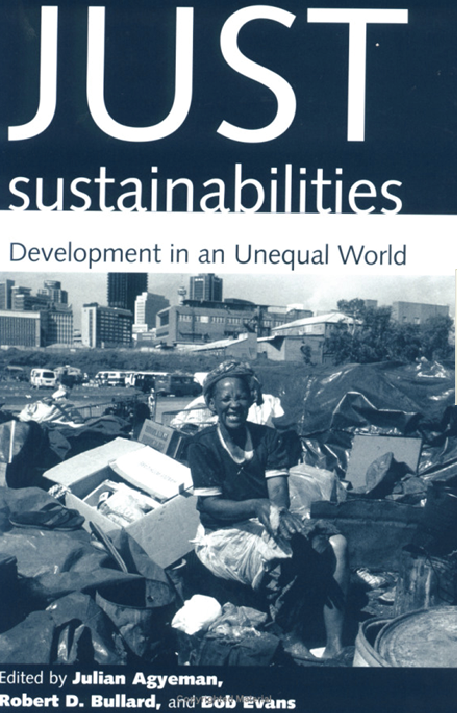In practice, the policies of Northern Countries and Northern dominated global institutions continue to widen inequalities - increasing Northern resource consumption and maintaining flows of resources and money [in debt repayments] from South to North. The arguments aired above lead to advocacy of the distribution technique known as ‘grandfathering’ [where for example the rights to burn fossil fuels would be allocated in proportion to current rates of use]. Most proposals for implementation in the Kyoto Protocol to the United Nations Framework Convention on Climate Change [UN 1997], such as ‘Joint Implementation’ and the ‘Clean Development Mechanism’, implicitly assume a distribution of emissions rights on this basis. The equitable alternative would be to allocate consumption or pollution rights according to population, in accordance with a planned transition to equal consumption. An example of this for fossil fuel use is the “Contraction and Convergence” scenario promoted by the Global Commons Institute and supported by the GLOBE group of parliamentarians [GCI-Meyer 2000]. One implication of the analysis presented below is that ‘compensation’ should be added to “Contraction and Convergence”.
There is a very pragmatic imperative for pursuing such strategies - which is that the participation of developing countries is essential in global programmes to deal with problems such as climate change - and politically such participation will not be achieved without a commitment by the North to increase equity. Moreover the needs of Developing Countries to increase economic consumption to escape poverty cannot be met by simply increasing efficiency - they will need to increase real levels of material resource use. In the absence of voluntary reductions in the North, some of these limited resources - such as oil and water - may well become, even more than at present, a reason for conflict and war. (Myers 1996).Equity-base strategies for cutting overall global consumption levels would have wider implications, by directly challenging the legitimacy of export-led development and globalization policies which increase resource exploitation. At present the global economy is dominated by policies which increase resource exploitation and practices which drive in this direction. For example ‘structural adjustment programmes’ - promoted by the International Monetary Fund (IMF) and the World Bank as a condition for debt rescheduling - stress measures to earn foreign currency and improve the balance of payments. This basically means increasing commodity exports whilst cutting social expenditure [Watkins 1995]. In parallel, Northern countries support and even subsidize exports of equipment and infrastructure needed to exploit forests, fisheries, minerals and petroleum through export credit agencies [Hildyard 1999].
Just Sustainabilities: Development in an Unequal World (Urban and Industrial Environments)
Julian Agyeman
.
C&C endorsements in a range of Academic Publications
Why not Follow @aubreygci
Why not
Tweet this?

